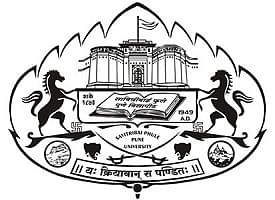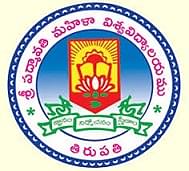Navigating the World of B.Com
Marketing: Your Gateway to the Dynamic Field of Business and Commerce
Introduction
Embarking on a Bachelor of Commerce B.Com in Marketing opens doors to
a vibrant and evolving field where creativity meets strategy. This blog serves
as your guide, offering insights into admission criteria, eligibility
requirements, and a glimpse into the enriching syllabus that defines this
undergraduate journey.
Admission Eligibility
Before diving into the intricacies of marketing strategies and consumer
behavior, aspiring B.Com Marketing studies must meet specific admission
criteria. While these requirements may vary between universities and colleges,
common prerequisites typically include:
1. Educational
Background: A high school diploma or equivalent qualification is the
basic requirement. Students are expected to have completed their secondary
education with a focus on subjects such as mathematics, economics, business
studies, and commerce.
2. Minimum
Academic Standards: Most institutions set minimum academic standards,
often expressed as a certain percentage or GPA (Grade Point Average) from high
school examinations. Competitive programs may have higher entry requirements,
particularly for specialized tracks like Marketing.
3. Entrance
Examinations: Some universities and colleges may require applicants to
clear entrance examinations specific to their institution or region. These
exams assess a student's aptitude in subjects relevant to commerce and business
studies.
4. Language
Proficiency: For international students or in institutions where the
medium of instruction is not the native language, proof of language proficiency
(such as scores from tests like TOEFL or IELTS) may be required.
5. Interviews
and Personal Statements: In some cases, applicants may be required to
attend interviews or submit personal statements outlining their motivations,
career aspirations, and alignment with the program's objectives.
The Syllabus: Mapping Your Academic Journey
Once admitted, students in the B.Com Marketing program embark on a
comprehensive academic journey designed to equip them with essential knowledge
and skills in business and marketing. While specific courses may vary, a
typical syllabus includes:
1. Foundation
Courses in Commerce: Core courses provide a solid grounding in
fundamental principles of commerce, including accounting, economics, business
law, and financial management. These courses establish a strong base upon which
marketing-specific knowledge is built.
2. Introduction
to Marketing: An introductory course lays the groundwork by exploring
key concepts in marketing theory and practice. Topics often include
understanding consumer behavior, market segmentation, branding strategies, and
the marketing mix (product, price, place, promotion).
3. Market
Research and Analytics: Courses focused on market research techniques
and data analytics teach students how to gather and interpret market data,
conduct surveys and focus groups, and use statistical tools to make informed
marketing decisions.
4. Digital
Marketing: In response to the digital revolution, courses in digital
marketing cover strategies for online advertising, social media marketing,
search engine optimization (SEO), content marketing, and the use of analytics
tools to measure digital campaign effectiveness.
5. Strategic
Marketing Management: Advanced courses delve into strategic marketing
planning, competitive analysis, brand management, and the development of
marketing strategies aligned with organizational goals. Case studies and
simulations often provide practical insights into real-world marketing
challenges.
6. Electives
and Specializations: Depending on the institution, students may have
the opportunity to choose electives or specialize in areas such as
international marketing, retail management, consumer psychology, or marketing
communications.
Conclusion
In conclusion, pursuing a B.Com degree with a specialization in
Marketing offers a dynamic blend of theoretical knowledge and practical skills
essential for success in the competitive world of business. From mastering core
concepts in commerce to exploring cutting-edge marketing strategies, students
embark on a transformative educational journey that prepares them for diverse
career opportunities in advertising, brand management, market research, digital
marketing, and more. As you consider your academic path, remember that a B.Com
Marketing degree not only equips you with technical expertise but also nurtures
creativity, analytical thinking, and strategic acumen—qualities valued across
industries in today's global marketplace. Whether you aspire to lead marketing
campaigns for multinational corporations, launch your own startup, or drive
social change through innovative marketing initiatives, your journey starts
here, with a commitment to learning, growth, and making a meaningful impact in
the world of commerce and marketing.












